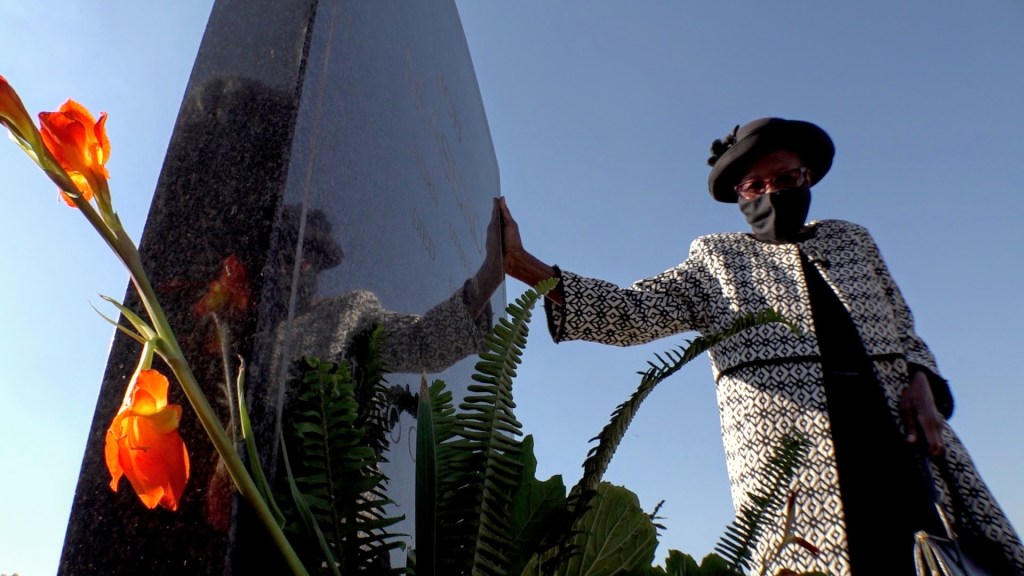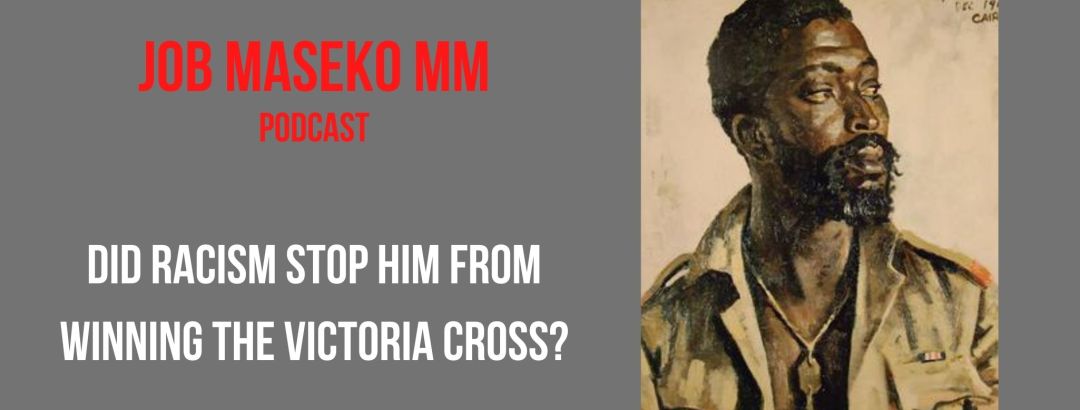In April I noticed a flurry of press activity around a black South African soldier called Job Maseko. Job had won a Military Medal for single-handedly blowing up a German transport ship while a Prisoner of War in Tobruk, north Africa, in 1942.
The gist of the press reports was that Job should have won a Victoria Cross and that racism from senior officers meant that his award was blocked. Could that be true? My investigation to try and answer that question took me to the Ditsong museum in Johannesburg, to the website of the National archives and on to the streets of Kwa Thema township, near Springs, South Africa, to meet Job’s surviving family members.
A campaign had been launched online by a man named Bill Gillespie, whose father had fought with the South African army in north Africa. I started my research by reaching out to Bill and hearing what he had to say. Bill was adamant that Job should have won a VC and that the MM was merely a ‘consolation prize’. In fact the Military Medal is a very prestigious award – it is often referred to as a ‘fighters medal’.
To find out more I visited the UK national archives and found both the citation for Job’s award and the intelligence report that accompanied it. The story was a spectacular one – Job did blow up the ship and then shortly afterwards he escaped from captivity and, alongside a colleague, walked for 23 days across the desert to reach allied lines. He was originally recommended for the British Empire Medal, but when Tobruk was captured shortly afterwards, and the story was found to be completely true, this was upgraded to an MM – in fact ‘immediate MM’ is scrawled in pencil on the citation.
But should he have won a Victoria Cross? Well, I interviewed Keith Lumley of the VC Trust and he pointed out two two important points. For a Victoria Cross to be awarded the act must be ‘in the face of the enemy’, in other words in combat. Secondly, the act must be witnessed. While incredibly brave, Job’s deed did not fulfil either of these criteria.

The highlight of this investigation, that you can watch on YouTube above or listen to here, was meeting Job’s surviving relatives. The family still stays in Kwa Thema township, near Springs, on the edge of Johannesburg. Together we visited his grave, and it was wonderful to see that he is far from forgotten. In the township is a school named after him and also a road. His memory lives on.

I’m interested to know more about South African soldiers especially black people.from ww 2
LikeLike